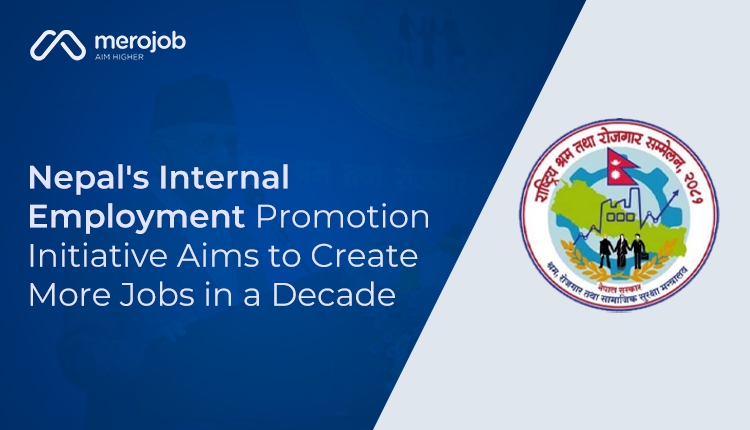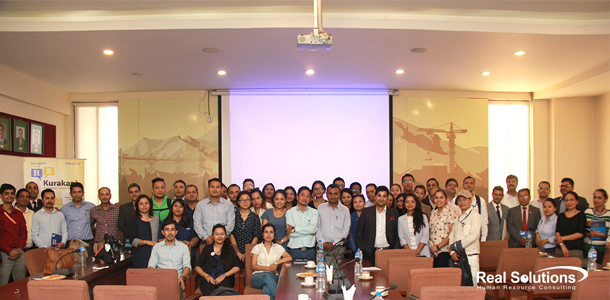What is the most important resource in any organization? - Finance? Technology? Production resources? or Inventory?
As a head of any organization, if you are still juggling to find your answer amongst the options listed above, then there are serious doubts concerning the success of your organization, - for the answer is Humans. Yes, it is people who can make or break an organization, and a company with improper management of its employees is inevitably doomed!
Human resource (HR) management has obtained a status of grave importance in the international context. However, in Nepal, we are still very far behind. It is 2018, and there are still many private firms that combine HR with its administrative branch, where the only HR practices carried out are record keeping and updating salaries. Even amongst those who have implemented a more wholesome approach to HR, many use policies and practices that are simply a replication of HR practices employed by foreign organizations. These practices can have little relevance to the Nepalese context, and at times end up doing more harm than good. This is the reason many private firms in Nepal face problems in the following areas:
- Recruitment to suit organization needs: Many organizations often spend way more time, effort and resources than necessary, to recruit a candidate for a single vacancy. They are often unable to find the right candidate and end up having to repeat the same process of “search-screen-interview-hire”, numerous times before actually landing the right candidate. This is because many organizations fail to realize that recruitment is a complex process that is dependent not just on the academic marks obtained by a candidate, or the skills he/she possess. Factors such as attitude, potential, determination, fit to organization culture, etc., are not taken into account, - resulting in certain organizations taking up to months to fill a vacancy effectively.
- Retainment of good employees: After the excruciating process undertaken by these organizations to find the perfect employees, they are quickly faced with another huge challenge- that of retaining them. Most employees tend to work for private firms only until they are offered a better job elsewhere; most preferably abroad. The only way they can be retained seems to be by offering them huge sums in salary; which in most cases, the organizations cannot afford. This happens because the employee never internalized with the company, its culture and its missions. To most Nepalese employees working in private organizations, it is always about “working for the organization”, never “working as an organization”. And this reflects, to quite an extent, the failure of HR departments for letting it be that way.
- Stagnancy of Employees and demotivation: An important factor overlooked by most organizations in Nepal is the potential of its employees. Many organizations recruit and retain employees for specific skills, and grind them for years at the same task, - never thinking about what more the employee might be able to offer. This is the result of not taking proper efforts to know your employees and train them accordingly. In Nepal, it is predominantly only banking institutions (apart from a few others), that seem to offer training programs to grow their employees into more than what they were acquired for. Also, growth and motivation go hand in hand, and an employee who finds himself growing is often motivated and more likely to stick with the company, thereby solving the problem of retention too.
Yes, all of the above seems quite hectic, and the worst part is that there is more to HR than just those mentioned above. The main problem faced in terms of Human Resource Management is a lack of knowledge. Most HR departments in Nepalese organizations consists of managers and executives, that have been educated in a different field, and lack the proper knowledge required.
There are however solutions to overcome these complications:
- Train your HR department: You can train executives in your HR department in all the necessary areas to effectively manage your Human Resource.
- Outsource: An option preferred by many companies is to simply outsource key functional areas, or their entire HR requirements altogether. This way the organization can focus on other core competencies and business strategies.
HR Outsourcing services have now growingly emerged in Nepal due to its growing needs. If you are in need of training or outsourcing your HR needs, Real Solutions is a good option for it. They provide services specific to your needs such as HR Consulting, Staff Outsourcing, Corporate Training, and Recruitment services.
Simply call +977-1-4106706, 4106708 or email: [email protected], to know more.
_______________________________________________________________________________
“You can have the best strategy and the best building in the world, but if you don’t have the hearts and minds of the people who work with you, none of it comes to life.”
– Renee West, Luxor and Excalibur Hotel.

















